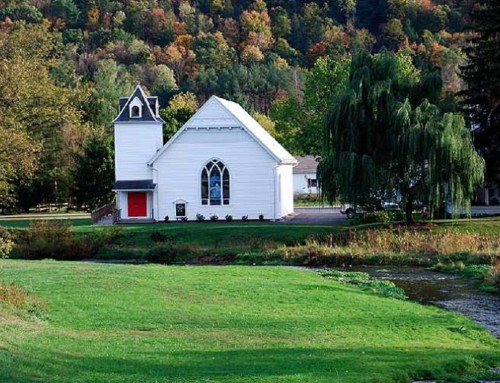Do you ever wonder if something is lacking in our spiritual diet these days? Does it ever seem to you that many contemporary Christians seem kind of…anemic ? That we lack the robust, rugged endurance, the commitment and character of believers in ages past?
Our hearts are not of inferior quality. No, we’re cut from the same divine cloth. Born again in the same image of Jesus that produced missionaries and martyrs of days gone by, our spiritual genes are identical to theirs. But sometimes we seem so weak and fussy by comparison.
Maybe it’s just me (I’d be eager to know your opinion) but I think that in part it might be our food. Maybe too many additives and fillers have crept into our preaching, teaching, and thinking. I notice that when I read old Christian classics, I absorb rich nutrients that fortify my spirit. I’m fed by them in a way that I’m not by many more recent writings. The new to the old is at times like Cinnabon to broccoli. The first may be more tasty, go down more quickly and require less chewing, but the second—hard as it may be to swallow—contains more life.
Take, for example, this paragraph from Quiet Talks on Prayer (copyright 1904) in which the author discusses what Jesus meant when He said, “If any man would come after Me let him deny himself and take up his cross and follow Me” (Matthew 16:24). It says:
“Come after Me” means all the power of Jesus’ life, and has the other side, too. It means the wilderness, the intense temptation. It may mean the obscure village of Nazareth for you. It may mean that first Judean year for you—lack of appreciation. It may mean for you that last six months—the desertion of those hitherto friendly. It will mean without a doubt Gethsemane. Everybody who comes along after Jesus has a Gethsemane in his life. It will never mean as much to you as it meant to Him. That is true. But, then, it will mean everything to you. And it will mean too having a Calvary in your life in a very real sense, though different from what that meant to Him…
How much there is to digest in that one paragraph! How much strength we can gain just by considering with seriousness the phases of Jesus’ life listed there!
Just today, thinking about His Nazareth phase, for instance, I’ve seen in it something new. I’ve uncovered an additional reason for our contemporary Christian anemia: Many of us abandon our Nazareth season too soon. Eager for the trappings of success and the affirmation of our peers, we cut short that phase of our spiritual development.
Jesus didn’t do that. He spent 30 years maturing in His deadbeat hometown. Thirty years there increasing in “wisdom and stature, and in favour with God and man.” Thirty years in a place so disrespected that people sniffed when they mentioned it, like they’d gotten a whiff of manure. Thirty years in a place nobody cared about doing things that nobody noticed.
And three years in ministry.
Think of it. Jesus was sinless from the day He was born. By age 12 He was a more gifted teacher than any in Jerusalem. He taught his elders in the Temple and they marveled.
Yet God did not open any doors of opportunity for Him at 12. No, spiritual prodigy that He was, he had to turn his back on the adulation at Jerusalem and go back home. Help his mother with the dishes. Sit patiently with his Jewish aunties and listen with kindness as they chattered on about nothing of eternal value. Be tender with his non-sinless brothers. Spend days in the carpentry shop sweating over table legs and ox carts. Pray and study. Prepare for messages no one in Nazareth cared to hear.
And He had to do it for 18 more years.
Why? Because maturity takes time. And for Jesus to fulfill God’s plan, He had to be not just sinless, not just gifted, not just overflowing with revelation, but mature. A spiritual grown up.
I think that for most of us it’s easier to face the wilderness temptations and the Gethsemane seasons than the 30 years of obscurity in Nazareth because Nazareth seems…to go on…forever. Especially in our drive-though, microwave, high-speed connection culture, it’s almost more than we can bear.
But Nazareth is what it takes to grow up, to grow strong in love, patience, kindness, gentleness, humility, joy, and peace. Nazareth is what it takes to be mature.
And God knows, even if we don’t, that maturity is worth the wait.







